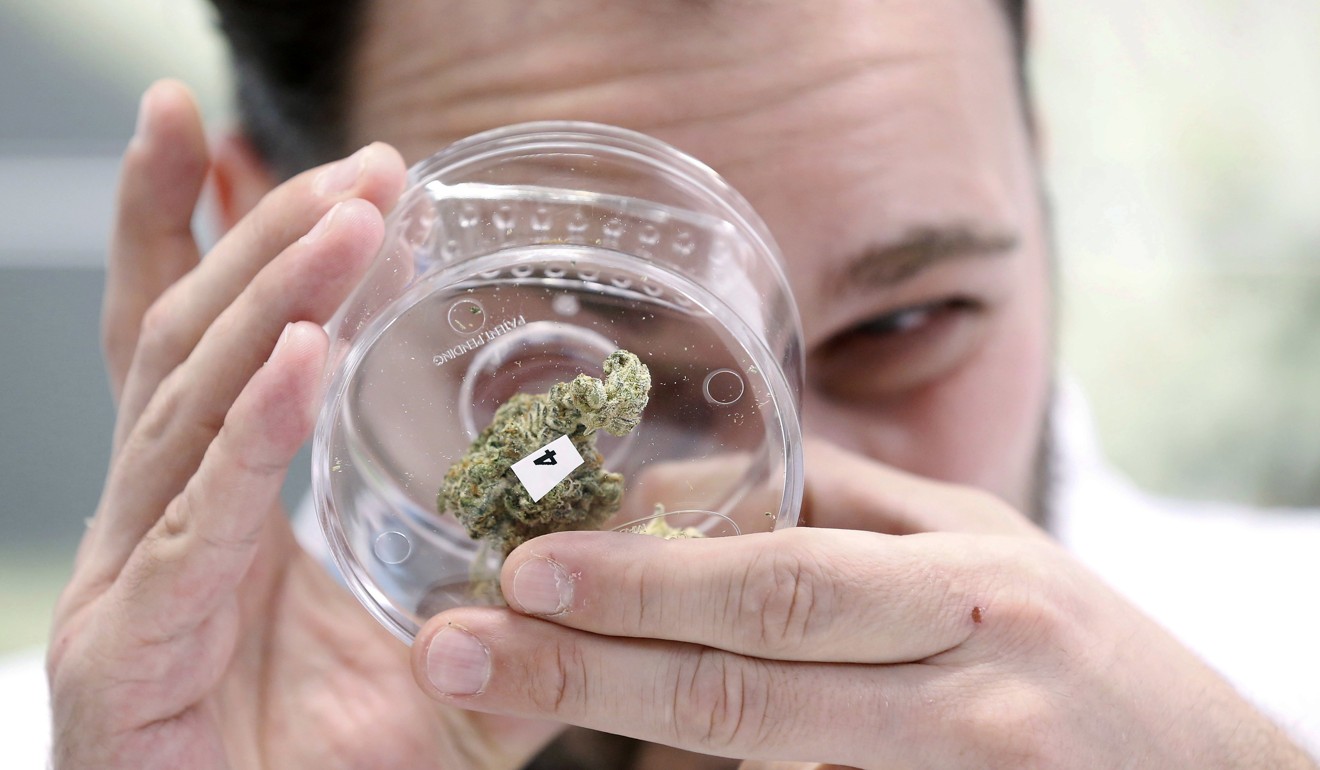
CBD: the people who understand the potential of medicinal marijuana, and the officials who don’t
- NFL players use it, Thailand just legalised it, drinks giants are looking at it, even pets are getting it: acceptance of cannabidiol’s benefits is growing
- The compound is not psychoactive, and so does not make users high, yet most governments, including Hong Kong’s, are in no hurry to approve CBD use
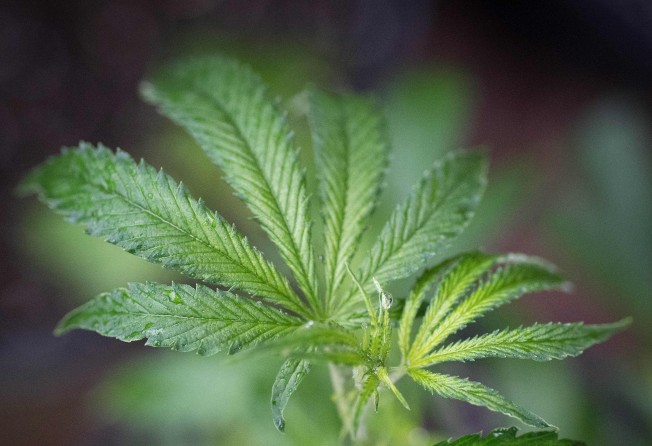
Mabel had not long turned 87 when she slipped on a patch of ice while out on her daily walk and broke her arm.
The problem was compounded by a history of joint problems and it left Mabel in considerable pain, as well as restricting her ability to lead what had up until then been a relatively active life.
“At this stage she really didn’t know what to do,” says James, Mabel’s son. “But someone suggested CBD pills and she was moving around, without pain, within a week. The change really was that dramatic.”
The global discussion about the medicinal use of cannabidiol (CBD) has reached Hong Kong in the past few months, sparked by the staging of The Cannabis Investor Symposium and evidence of the substance’s benefits, both anecdotal and established, with CBD having successfully been used in the treatment of a wide variety of ailments.

James says Mabel thought she’d been cured of her pain, so she stopped taking the pills after that first week, only to turn to more accessible and available CBD oil when the discomfort returned. It had the same positive effects.
James also says his mother had no qualms at all about using a substance that remains – in some markets, at least – clouded by doubt due to the fact that it is associated with, and sometimes mistaken for, the product from which it is extracted.
But CBD is not “weed”, you don’t smoke it and you don’t get high – and CBD oils are extracted from industrial hemp, a variety of cannabis that has only trace amounts of the THC, or tetrahydrocannabinol, that results in the euphoria felt after smoking a joint.
“Believe me,” James says, “this lady is no hippy. I guess as you age you become more pragmatic. Acceptability changes if suddenly you’re not in pain.”
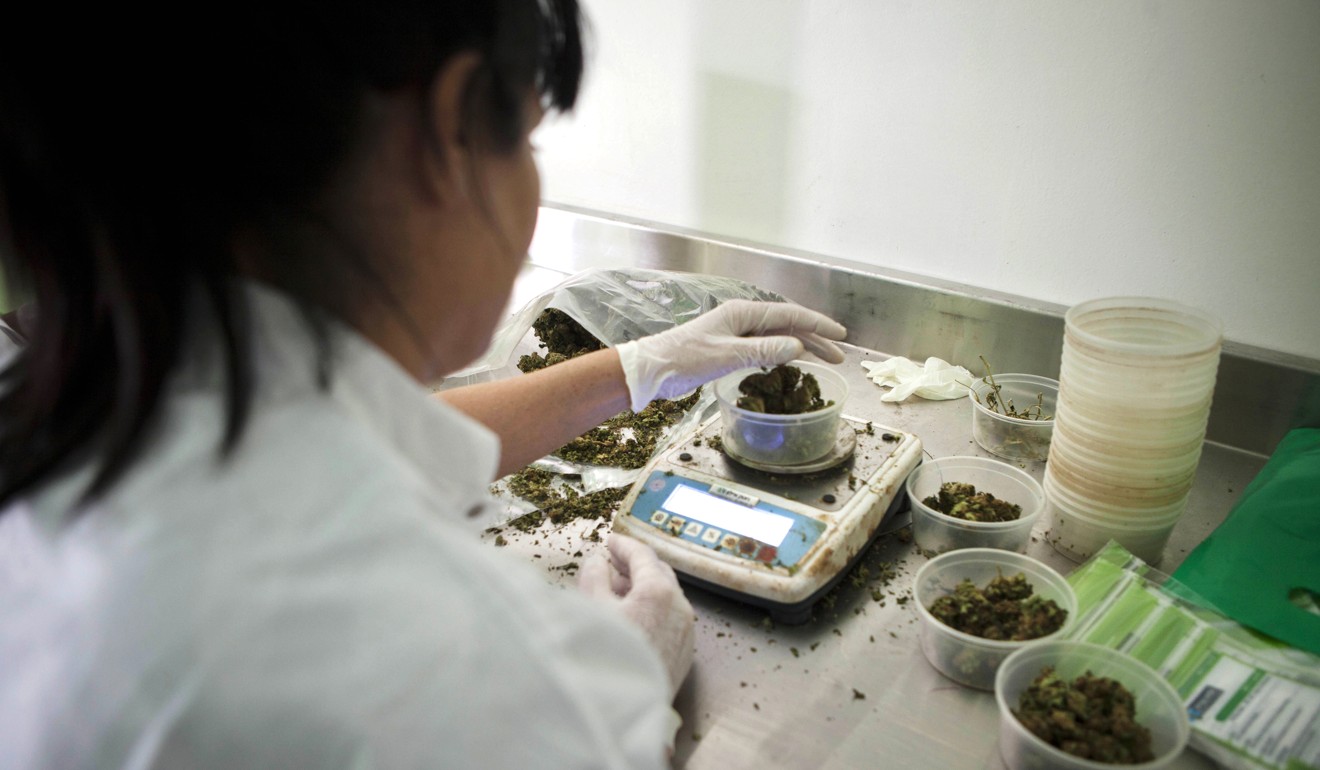
Saul Kaye is the founder and CEO of iCAN Israel Cannabis, an Israel-based “accelerator and services company that invests in cannabis products and solutions”.
Kaye helped organise The Cannabis Investor Symposium and he believes the mood is changing globally when it comes to the use of CBD, albeit slowly.
“There are about 300-odd compounds and only one compound gets you high,” says Kaye. “Everything else is about health and beauty and nutrition. But it’s that one compound that everyone thinks about.”
As the World Health Organisation has reported, CBD is a non-psychoactive chemical found in cannabis with no apparent adverse health effects; nor is it associated with “potential abuse”.
The WHO found its use was effective in the treatment of epilepsy in humans and in animals, and that preliminary evidence pointed to a positive use in the treatment of the likes of Alzheimer’s, Parkinson’s and cancer.
The fact that James’ mother lives in Canada certainly helped her cause. The country legalised recreational marijuana in October and it’s a place where people in general have long embraced an open mindset when it comes to the use of cannabis products.

Canada has also taken the lead in a cannabis industry that estimates say will be worth US$57 billion by 2027. A report into the industry by Arcview Market Research and BDS Analytic also claimed adult recreational use would account for 67 per cent of that market, while medicinal cannabis would account for the rest.
Other countries are in the process of changing their laws, and attitudes are changing towards cannabis and the products that can be derived from it. Thailand, where parliament recently voted to legalise medical cannabis, has a long history of using the plant to treat pain and nausea.
But James preferred not to go on the record with his story, as he lives and works in Hong Kong, where laws – and widespread opinion – on the use of cannabidiols differ. Private medical professionals approached for this article made the same request.
“We’re obviously not allowed by law to prescribe cannabidiol products to our patients, even though even though what we are seeing with our own eyes, and hearing from overseas, is all very positive,” says one health professional. “But there definitely needs to be more testing done, and that might change everything.”
In the US, the first cannabis-based medicine was approved by authorities in June.
Epidiolex, made by GW Pharmaceuticals, was passed by the Food and Drug Administration (FDA) for the treatment of two extreme forms of childhood epilepsy. The medicine is currently under review by the European Medicines Agency, with an eye on approval by mid-2019.
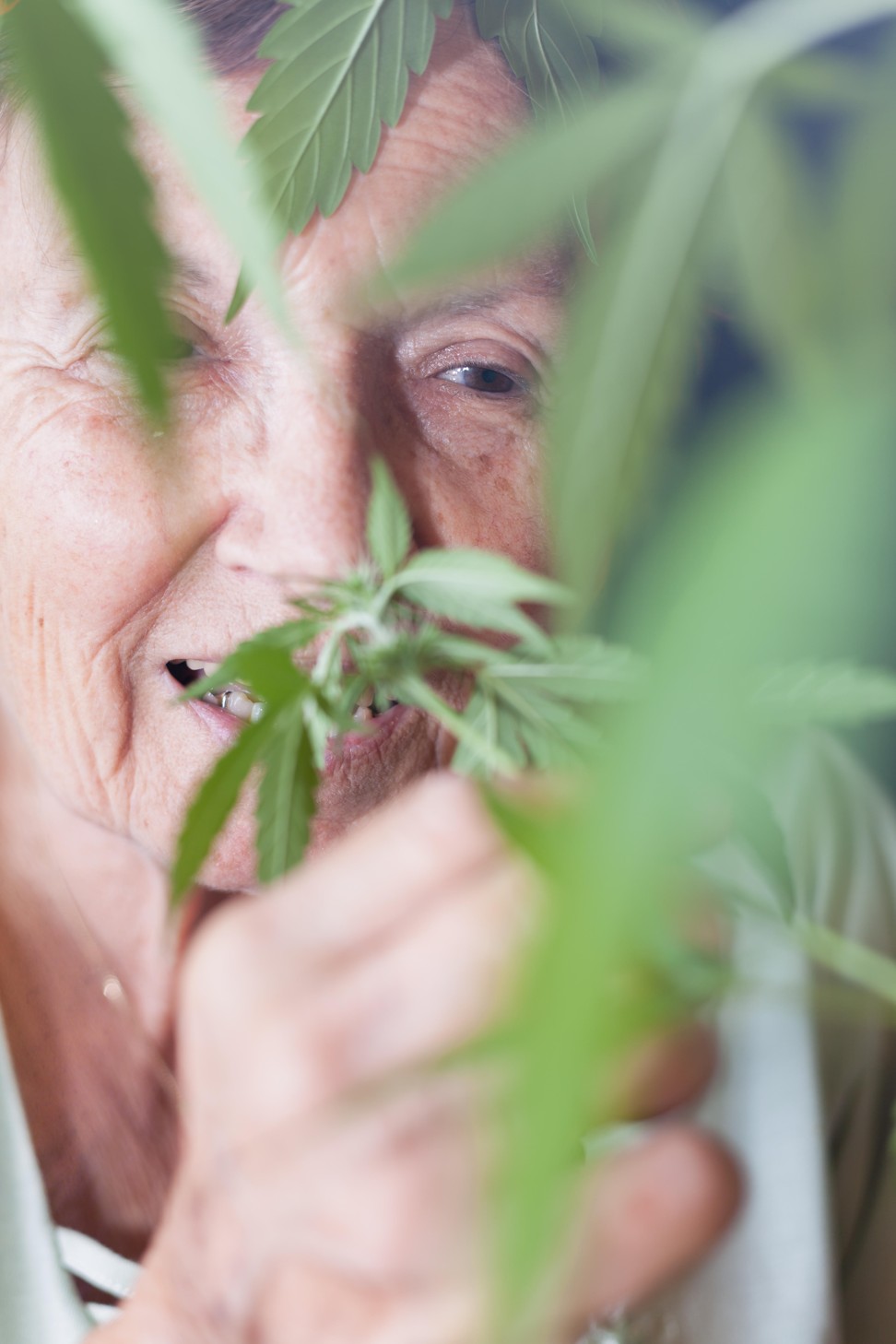
While those supporting the use of CBD are hoping the news would signal more such breakthroughs, the FDA’s commissioner, Scott Gottlieb, urged caution and “rigorous scientific research” through “the appropriate scientific channels”.
In Hong Kong, CBDs are currently not being considered for use by the city’s medical chiefs.
The law states that possessing or inhaling the substance can lead to seven years’ imprisonment.
Meanwhile, the Department of Health revealed that – under the Pharmacy and Poisons Ordinance (PPO) (Cap. 138) – there were no registered pharmaceutical products containing cannabidiol in Hong Kong, nor had any Certificate for Clinical Trial/Medicinal Test been issued involving pharmaceutical products containing cannabidiol.
There also appear to be problems associated with the matter of perception, as seemed to be the case in earlier reports on the issue when Professor William Chui Chun-ming, president of the Society of Hospital Pharmacists of Hong Kong, talked about the product being “addictive”.
It just works. It’s natural and it’s non-addictive and yet it is illegal because of bad policies and, I suppose, bad publicity
When asked to explain further, Chui said he believed CBD was “probably addictive and relatively less harmful” than tobacco and alcohol.
“We are [the] pharmacist profession and drug experts,” said Chui. “We have reviewed the medicinal claims made by the respective businessmen and came up with our comments on the use of CBD by professional judgment and clinical experience. Nowadays, we don’t use CBD for medicinal use including pain control.
“We have more alternatives. More importantly, they have more clinical evidence and data to support their uses in medicine. Therefore, we don’t need CBD used as drug treatment. Moreover, it has insufficient clinical evidence to support its clinical uses. We have no comment for its recreational use.”
Internationally, there has been growing interest in the use of CBDs in “wellness” products such as drinks, with even soft-drink giant Coca-Cola reporting in September that it was “closely watching the growth of non-psychoactive CBD as an ingredient in functional wellness beverages around the world. The space is evolving quickly.”
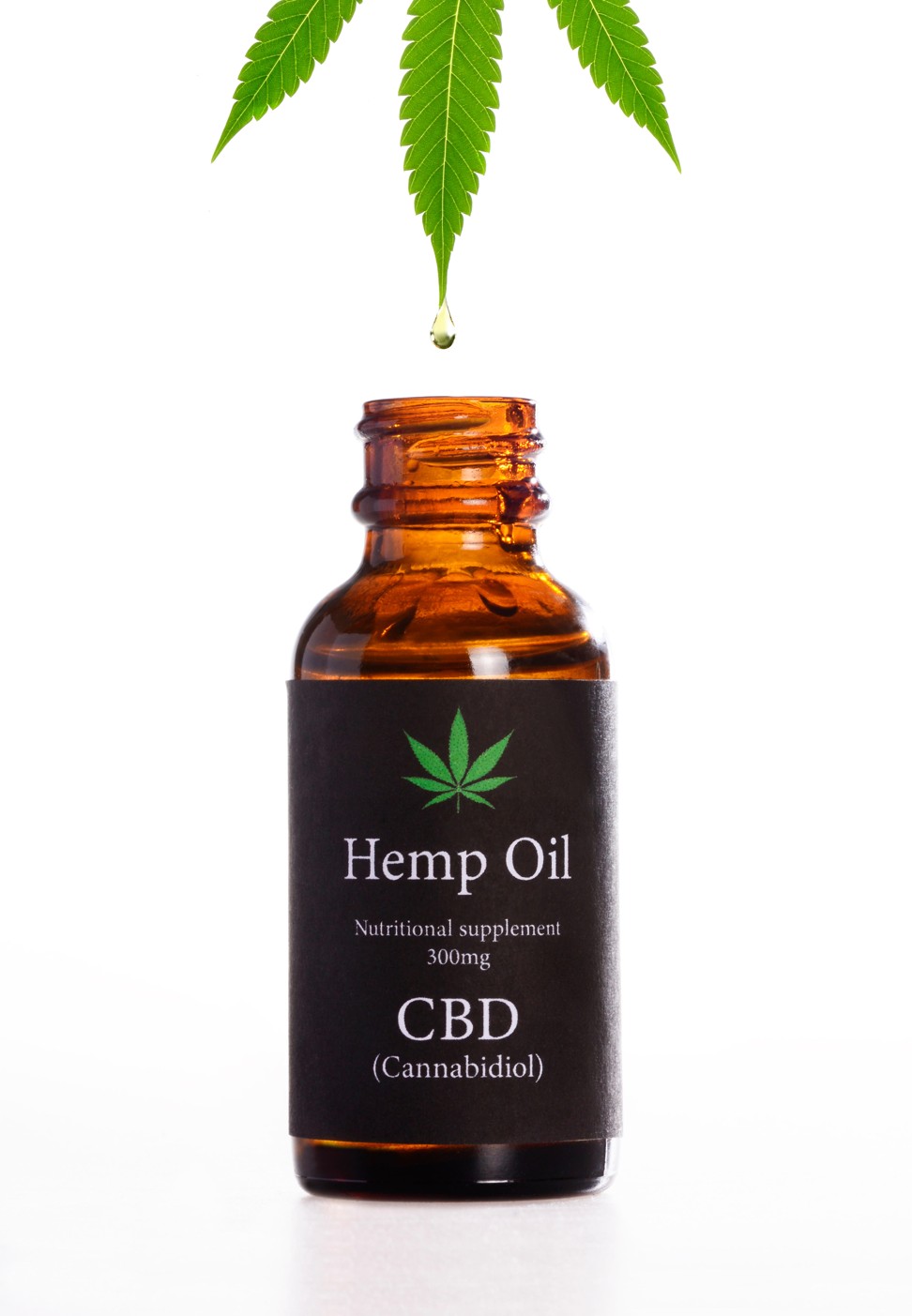
Other companies exploring the market include the beer giants Molson Coors, which has invested in research and development in an effort to develop CBD-infused non-alcoholic drinks. CBD-infused beers and cocktails are also being developed.
A number of American football players in the United States’ National Football League (NFL), mixed martial arts fighters and runners have openly been exploring the use of CBD for pain relief and to help in recovery.
Pets are also getting a look-in, with companies exploring CBD’s effectiveness in the treatment of chronic pain, inflammation and even anxiety.
Kaye believes reports on such events often fail to differentiate between cannabis and CBD, as was proved following the Hong Kong event.
“The science has been there since the 1960s,” says Kaye. “It just works. It’s natural and it’s non-addictive and yet it is illegal because of bad policies and, I suppose, bad publicity. There is a stigma in some places and those places are watching other countries to see what happens.
“In terms of medical tourism, we already know that patients are moving out of their own countries to find where they can access the treatment. The market is growing and knowledge is growing. We know it works and it is safe, it’s relatively easy to grow and it’s relatively easy to process. Now it’s a case of legislation catching up.”